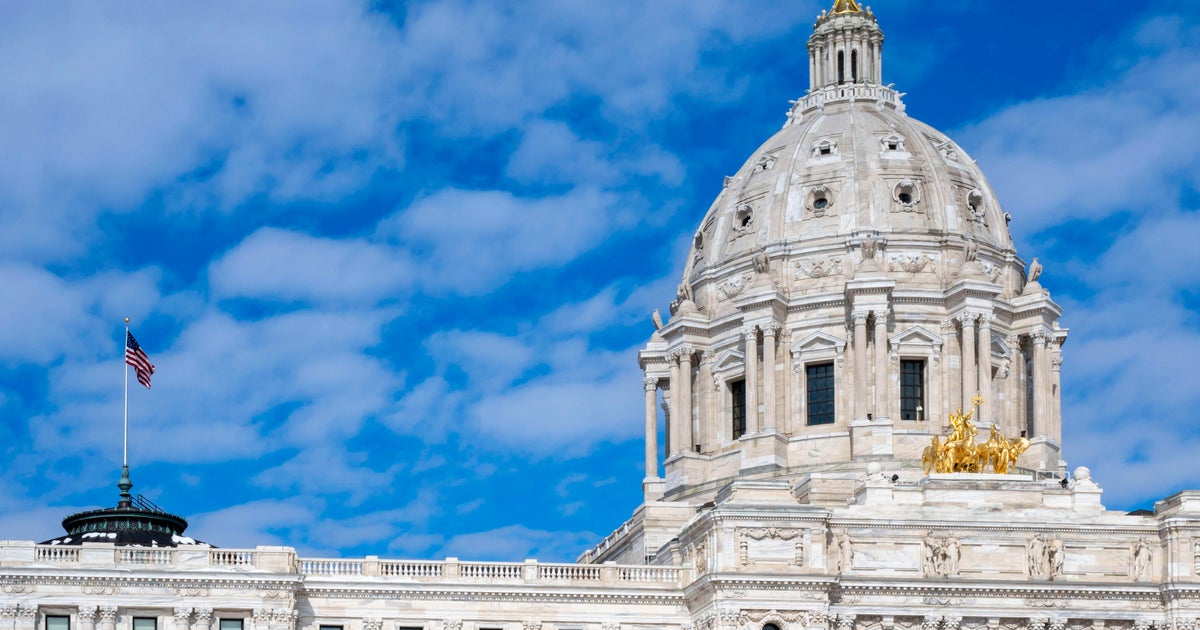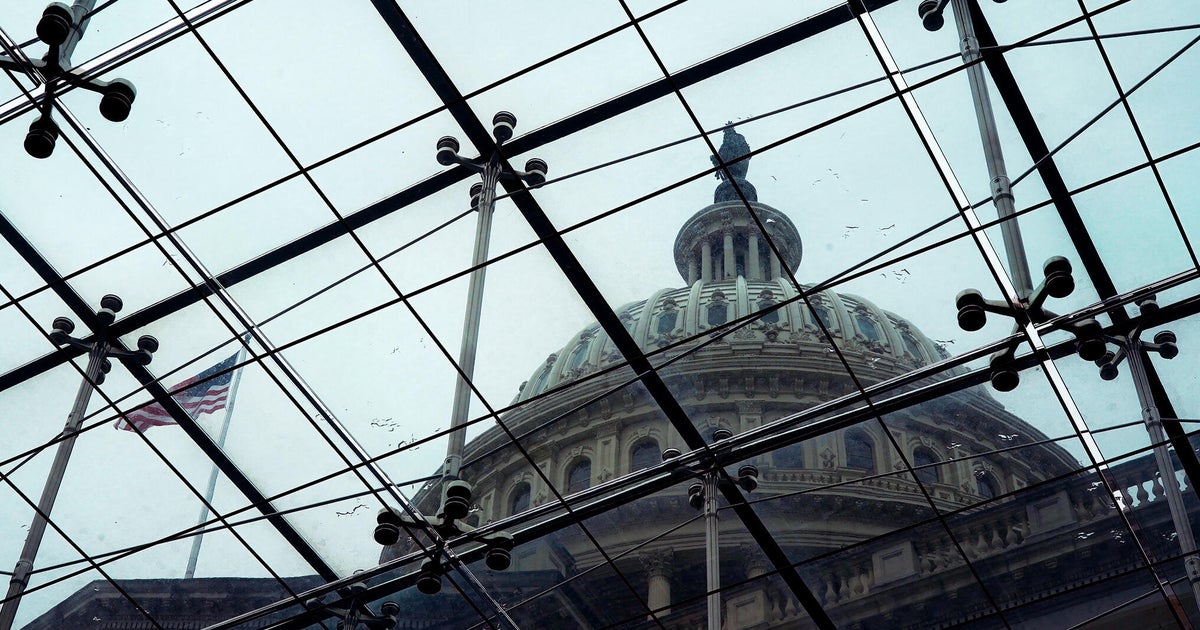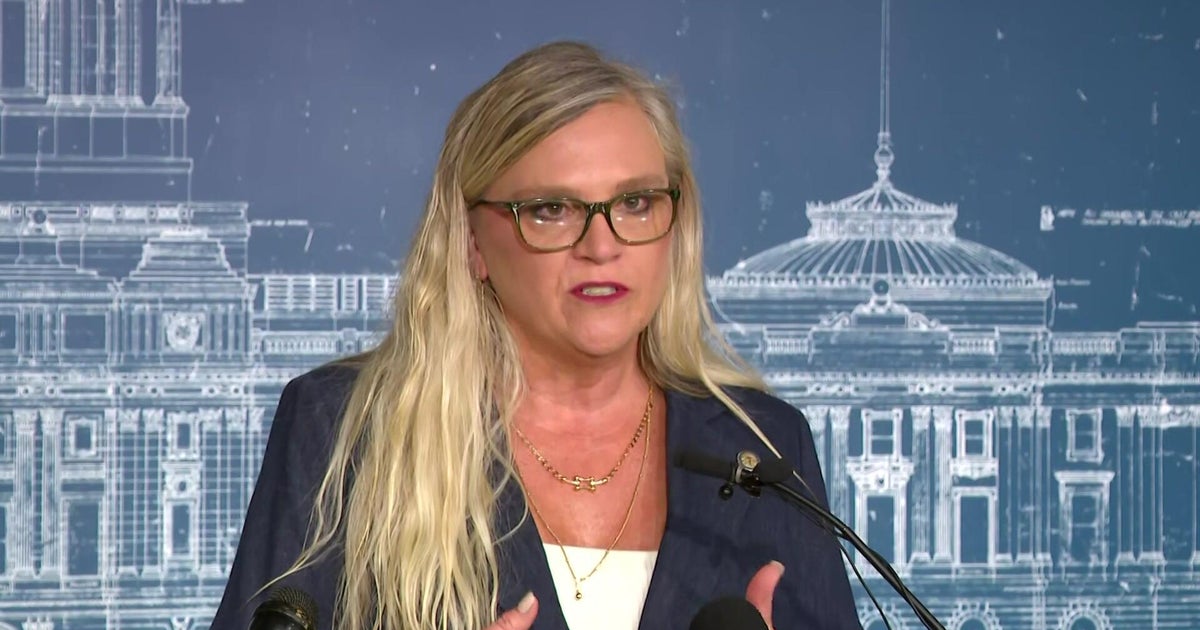Lawmakers reach deal on bipartisan January 6 commission
Four months after the deadly attack on the U.S. Capitol on January 6, House lawmakers have reached a deal on a bill to create a bipartisan commission to investigate the assault and come up with recommendations for securing the Capitol. The agreement comes amid efforts by some House Republicans to downplay the insurrection by a mob of Trump supporters.
House Homeland Security Committee Chair Bennie Thompson announced Friday that he had reached an agreement with ranking member John Katko. The two will introduce the legislation, entitled the National Commission to Investigate the January 6 Attack on the United States Capitol Complex Act, on Friday, and it will be considered by the House next week.
"There has been a growing consensus that the January 6th attack is of a complexity and national significance that what we need an independent commission to investigate. I am pleased that after many months of intensive discussion, Ranking Member Katko and I were able to reach a bipartisan agreement," Thompson said in a statement announcing the agreement. "Inaction - or just moving on - is simply not an option. The creation of this commission is our way of taking responsibility for protecting the U.S. Capitol."
The bill creates a commission similar to the panel created after the 9/11 terrorist attacks, to study the "facts and causes" of the attack "as well as the influencing factors that may have provoked the attack on our democracy," according to a fact sheet on the legislation.
The bipartisan panel would be composed of ten members, including a chair. House Speaker Nancy Pelosi and Senate Majority Leader Chuck Schumer would choose five members, including the chair, with the other five, including the vice chair, to be appointed by Senate Minority Leader Mitch McConnell and House Minority Leader Kevin McCarthy. Republican lawmakers had previously rejected a proposal by Pelosi to create a panel that would have had more Democrats than Republicans.
The commissioners must have "significant expertise in the areas of law enforcement, civil rights, civil liberties, privacy, intelligence, and cybersecurity," and cannot be current government employees or officers. Like the 9/11 commission, the panel would have the authority to issue subpoenas, but only upon the agreement of the chair and vice chair or a majority vote by all the commissioners.
The commission would be required to submit a report of its findings, "along with recommendations to prevent future attacks on our democratic institutions," by December 31.
"An independent, bipartisan commission will remove politicization of the conversation and focus solely on the facts and circumstances surrounding the security breach at the Capitol as well as other instances of violence relevant to such a review," Katko said in a statement after the deal was announced. "This is about facts, not partisan politics. I appreciate Chairman Thompson's robust collaboration and strong commitment to working together on this effort."
Pelosi praised the deal reached by Thompson and Katko in a statement on Friday.
"It is imperative that we seek the truth of what happened on January 6 with an independent, bipartisan 9/11-type Commission to examine and report upon the facts, causes and security relating to the terrorist mob attack," Pelosi said.
Pelosi said in a letter to colleagues on Friday that the House would vote on the bill next week, along with the $1.9 billion supplemental to shore up security around the Capitol complex.
Pelosi's initial proposal, drafted in February, would create a panel to "conduct an investigation of the relevant facts and circumstances relating to the domestic terrorist attack on the Capitol," comprising four Republicans and seven Democrats. She later proposed a different structure for a commission that would have given Democrats and Republicans an equal number of commissioners, but there were disagreements about the scope of of inquiry for the commission.
McCarthy expressed some concerns about the scope of the commission after the deal was announced, even though the agreement was partially negotiated by a Republican member.
"You've got to look at what the build up before and what has gone on afterwards, otherwise the commission does not work," McCarthy told reporters Friday.
McCarthy himself could be called as a witness by a commission investigating the attack. Details of a call between McCarthy and Mr. Trump on January 6 while the riot was ongoing emerged in February during the president's second impeachment trial, when GOP Congresswoman Jaime Herrera Beutler described the conversation in a statement. Herrera Beutler said in a statement that McCarthy told her that he had asked the president to publicly and forcefully tell the rioters to stop, but "the president initially repeated the falsehood that it was antifa that had breached the Capitol."
"McCarthy refuted that and told the president that these were Trump supporters. That's when, according to McCarthy, the president said: 'Well, Kevin, I guess these people are more upset about the election than you are,'" wrote Herrera Beutler, one of the ten House Republicans to vote to impeach Mr. Trump.
McCarthy said in an interview with Fox News last month that he had been the first person to contact Mr. Trump after the riots started, and that the former president had not been aware of the gravity of the situation.
"I engaged in the idea of making sure we could stop what was going on inside the Capitol at that moment in time," McCarthy said. "The president said he would help."
Mr. Trump released a video on January 6 several hours after the siege began calling on the rioters to go home, but also said: "We love you. You're very special."
Some have suggested that McCarthy should be called to testify before any independent commission because of his conversation with Mr. Trump, including Congresswoman Liz Cheney. Cheney was ousted from her position as GOP conference chair on Wednesday because of her frequent criticism of the former president and her refusal to downplay the attack on January 6.
"I think that he very clearly and said publicly that he's got information about the president's state of mind that day," Cheney said in an interview with ABC News on Friday.
Meanwhile, some House Republicans have sought to downplay the attack in recent days. In a contentious hearing on Wednesday, several GOP lawmakers repeatedly disputed any characterization of the riot as an "insurrection." Congressman Andrew Clyde said "there was an undisciplined mob," but argued that "to call it an insurrection in my opinion is a bold-faced lie."
"Watching the TV footage of those who entered the Capitol and walked through Statuary Hall, showed people in an orderly fashion in between the stanchions and ropes taking pictures. If you didn't know the footage was from January 6, you would actually think it was a normal tourist visit," Clyde said.
Clyde's description did not acknowledge the violence that took place in the Capitol complex that day: Rioters attacked law enforcement officers defending the Capitol, injuring 140 Capitol and Metropolitan Police officers. One officer died the day after the attack, and two died by suicide shortly thereafter. A total of five people also died during the assault, including a woman who was part of a mob trying to break into the House chamber and was shot by an officer just outside the chamber.
Pelosi condemned Clyde's comments during her weekly press conference Thursday.
"It was beyond denial. It fell into the range of sick," Pelosi told reporters. "And that's what we have to deal with when we are saying it's urgent for us to secure the Capitol. 'Why? It was just a normal tourist day.' We have to strengthen our police force. 'Why? It was just a normal tourist day,' and we have to establish a commission for January 6. 'Why? It was just a normal tourist day.'"



